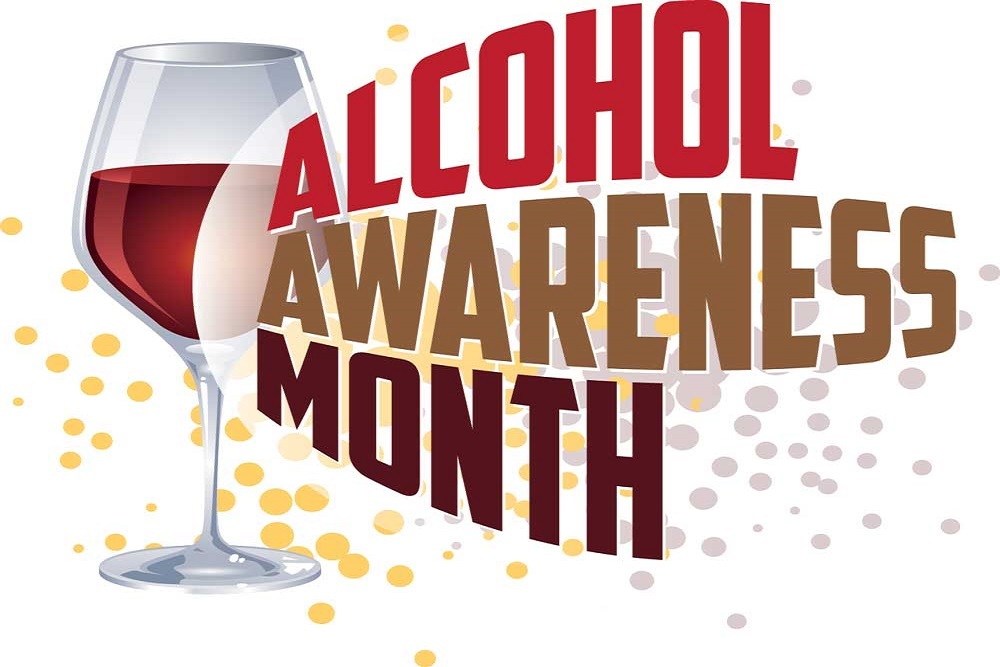April is National Alcohol Awareness Month
While national figures show a downward trend in the number of young people who use alcohol, alcohol remains the number one drug of choice for America’s youth, and is more likely to kill young people than all illegal drugs combined. That’s why it’s important to get involved in Alcohol Awareness Month, observed annually throughout April.
Alcohol Awareness Month aims to raise awareness and to help people understand the causes and treatment available for one of the nation’s biggest health issues. The campaign also aims to reduce the social stigma associated with alcoholism and to educate people on how the disease can be addressed, offering help and advice for families as well as direct engagement with those afflicted with alcohol addiction.
Alcohol addiction and abuse claims thousands of lives across the country each year. Some notable statistics on alcohol addiction include:
- Alcohol use is the third leading cause of preventable death in the United States.
- More than 65 million Americans report binge drinking or heavy drinking in a one-month period, which is more than 40% of those who drink alcohol.
- In 2019, there were 10,142 alcohol-impaired driving fatalities, totaling 28% of all traffic fatalities for the year
- Teen alcohol use kills 4,300 people each year, more than all illegal drugs combined.
Worried You or a Loved One Might Be Drinking Too Much? Start Asking These Questions
Alcohol can be a big part of American social lives. That can make identifying a potential substance use disorder difficult.
The National Institute of Alcohol Abuse and Alcoholism (NIAAA) offers a thorough checklist of potential symptoms of an alcohol use disorder. Alcohol use disorder is a spectrum, and a diagnosis is highly personal and individualized. If you're wondering if alcohol's becoming an issue, start with these questions.
In the past year, have you:
- Had times when you ended up drinking more, or longer than you intended?
- More than once wanted to cut down or stop drinking, or tried to, but couldn’t?
- Spent a lot of time drinking? Or being sick or getting over the aftereffects?
- Experienced craving—a strong need, or urge, to drink?
- Found that drinking—or being sick from drinking—often interfered with taking care of your home or family? Or caused job troubles? Or school problems?
- Continued to drink even though it was causing trouble with your family or friends?
- Given up or cut back on activities that were important or interesting to you, or gave you pleasure, in order to drink?
- More than once gotten into situations while or after drinking that increased your chances of getting hurt (such as driving, swimming, using machinery, walking in a dangerous area, or having unsafe sex)?
- Continued to drink even though it was making you feel depressed or anxious or adding to another health problem? Or after having had a memory blackout?
- Had to drink much more than you once did to get the effect you want? Or found that your usual number of drinks had much less effect than before?
- Found that when the effects of alcohol were wearing off, you had withdrawal symptoms, such as trouble sleeping, shakiness, irritability, anxiety, depression, restlessness, nausea, or sweating? Or sensed things that were not there?
There are many options for alcohol use disorder treatment, including behavioral counseling, medications, and support groups like Alcoholics Anonymous or SMART Recovery.
Treatment is never a "one size fits all" situation. It's important to create an individualized treatment plan before you start seeking any specific type of care. NIAA recommends talking with your primary care physician as an important first step for anyone considering treatment for an alcohol use disorder.
As you get ready to seek treatment, remember that you’re not alone. Addiction is treatable, and millions of Americans are thriving in recovery today.
(Information in this blog provided by the National Institute of Alcohol Abuse and Alcoholism and by Shatterproof)
Original source can be found here.


 Alerts Sign-up
Alerts Sign-up